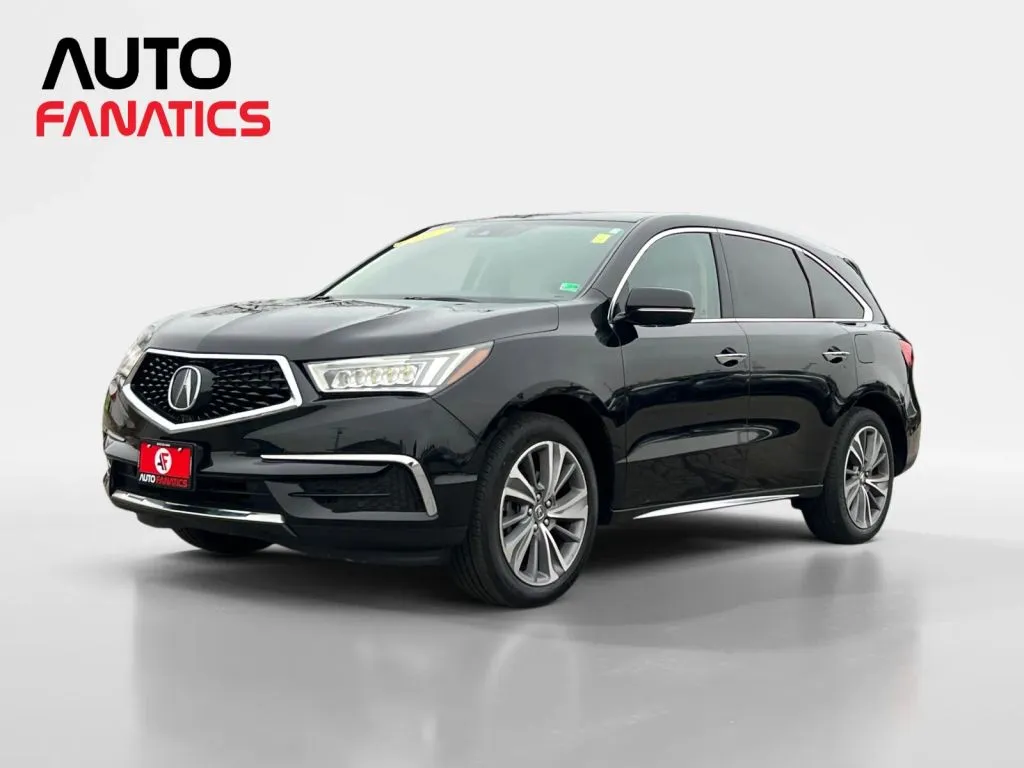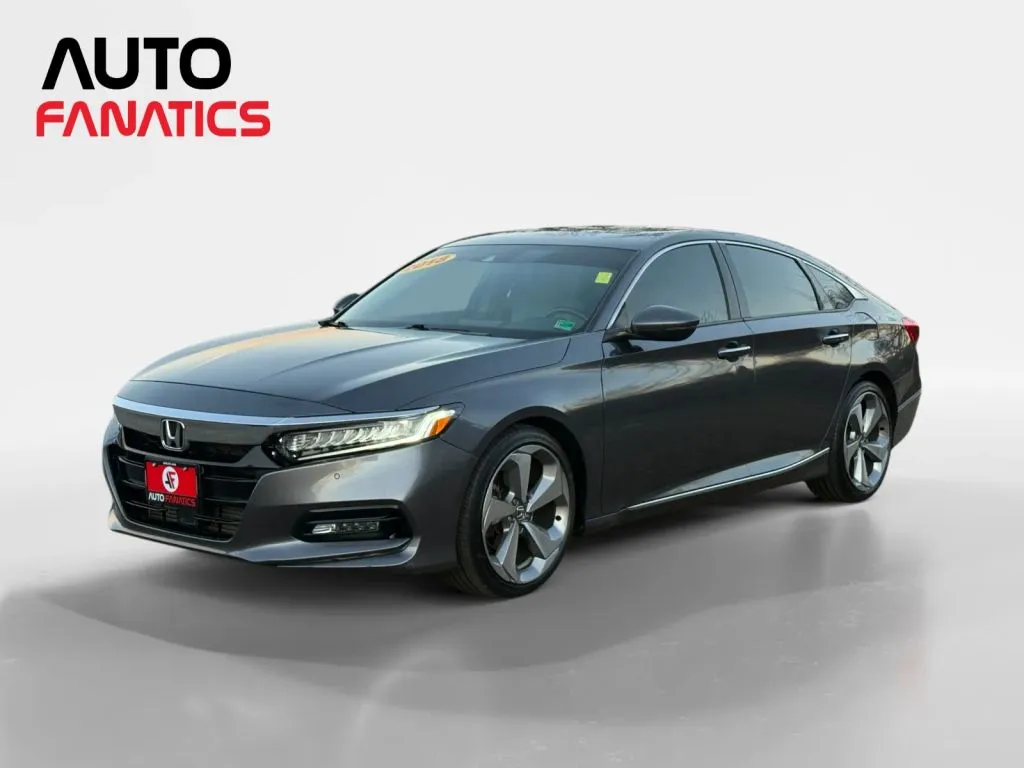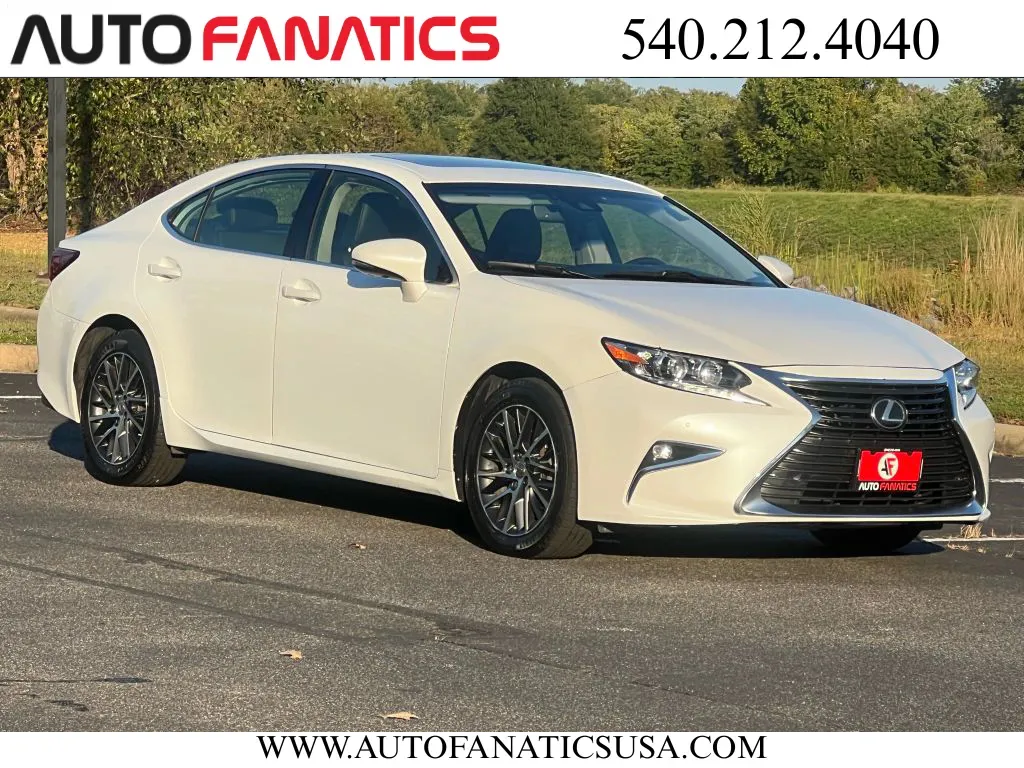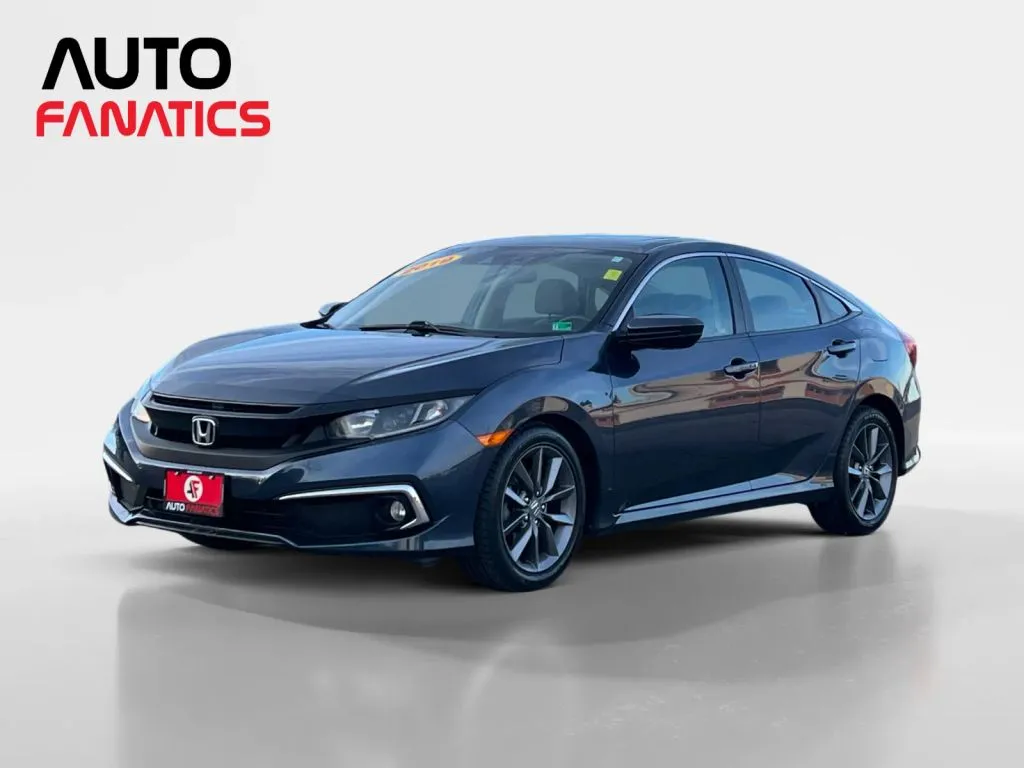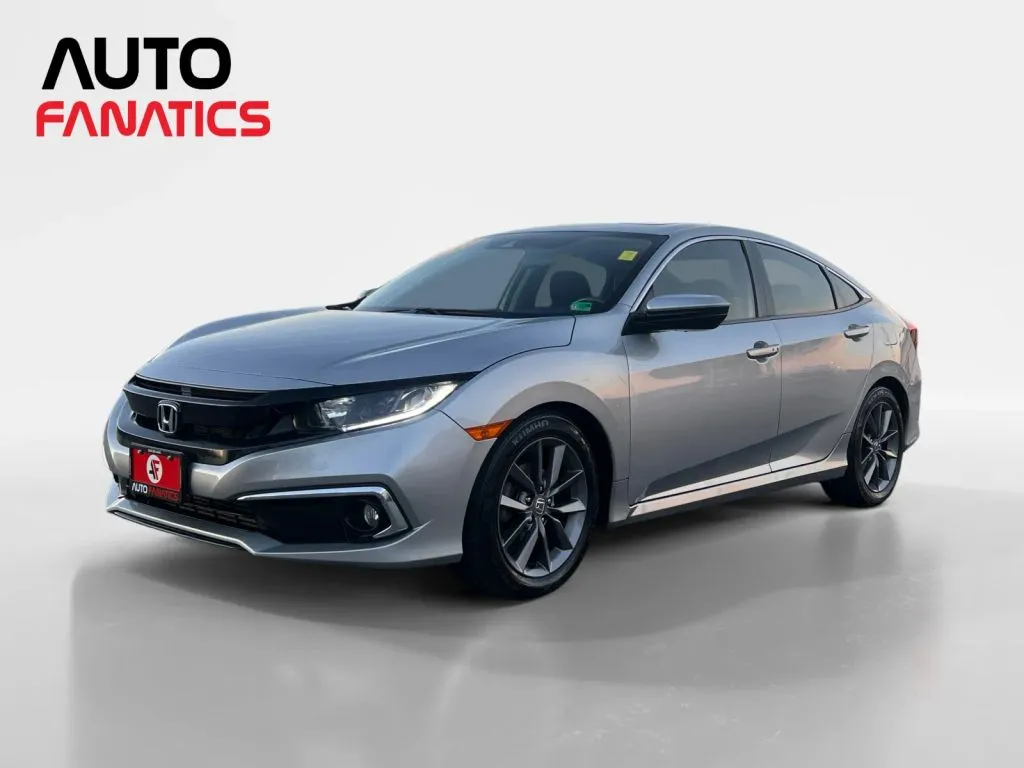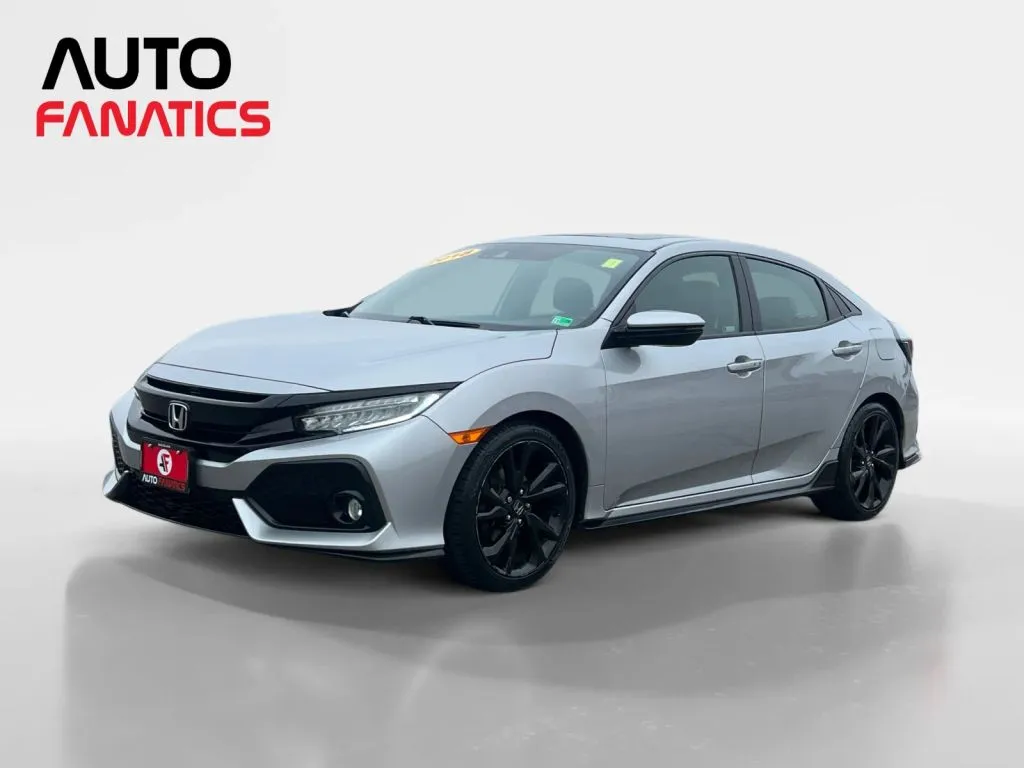How to Get Approved for a Car Loan: The Ultimate Guide
Table of Contents
How to Get Approved for a Car Loan: The Ultimate Guide
For too long, the car financing process has felt like something that happens to you, not with you. You find a car you love, then cross your fingers and hope the numbers work out. We believe in flipping that script. What if you could walk into the dealership already knowing your budget, your potential interest rate, and your buying power? That’s the control that comes with preparation. Understanding what lenders are looking for puts you in the driver’s seat of the entire transaction. This guide will give you the actionable steps and knowledge you need to take charge of your financing and get approved for a car loan on your own terms.
Key Takeaways
- Set Yourself Up for Success: Before applying, review your credit report for any errors, calculate your debt-to-income ratio, and gather your documents. This simple prep work makes the process smoother and puts you in a stronger position.
- Shop for Your Loan Before Your Car: Getting pre-approved gives you a clear budget and turns you into a cash buyer at the dealership. This puts you in control of the negotiation and helps you secure a better interest rate.
- Focus on the Total Cost, Not Just the Payment: A low monthly payment can hide a costly loan. Always compare the APR and the total amount you'll pay over the loan's term to ensure you're making a financially sound decision.
What Do You Need to Get Approved for a Car Loan?
Getting approved for a car loan can feel like a huge hurdle, but it’s much more straightforward when you know what to expect. Lenders are simply looking for confidence that you can manage the payments. By preparing a few key pieces of information ahead of time, you can make the process smoother and less stressful. Think of it as creating a simple financial snapshot that shows you’re a reliable borrower. Let’s walk through exactly what you’ll need to have ready.
Gather These Key Documents
Before you even start an application, gathering your documents will save you a ton of time. Lenders need to verify your identity, income, and other personal details. Having everything in one place makes the process a breeze. You’ll want to have your driver’s license, Social Security number, and proof of residence (like a utility bill) handy. You should also be prepared to provide contact information for yourself and any co-applicants. If you’re planning to trade in your current vehicle, collect its title and registration information as well.
Meet the Income Requirements
Lenders need to see that you have a steady source of income to cover your monthly car payment. They’ll look at your employment and how much you earn to determine what you can comfortably afford. This is often assessed using your debt-to-income (DTI) ratio, which compares your monthly debt payments to your gross monthly income. You can typically prove your income with recent pay stubs, W-2s, or bank statements. A consistent and verifiable income shows lenders that you’re a low-risk borrower, which is a big step toward getting that approval.
Understand Credit Score Expectations
Your credit score is one of the most important factors in a loan application. It gives lenders a quick look at your history of managing debt. While you don’t need a perfect score, a higher one generally helps you get approved with more favorable terms and a lower interest rate. According to Experian, a score of 661 or higher is considered prime and can improve your chances. Before you apply, it’s a great idea to check your credit report for any errors and see where you stand.
Show a Stable Employment History
Along with your income, lenders like to see a stable employment history. This doesn’t mean you need to have been at the same job for a decade, but it does help to show you haven’t had long or frequent gaps in employment. Consistency in your work history suggests financial stability and reassures the lender that your income is likely to continue throughout the life of the loan. Be ready to provide your employer’s name and address, your job title, and how long you’ve worked there.
Check the Vehicle Requirements
Finally, the car you want to buy also plays a role in the loan approval. Many lenders have specific requirements for the vehicles they’re willing to finance, especially for used cars. For example, they may have limits on the vehicle’s age and mileage, often preferring cars that are less than 10 years old with under 120,000 miles. This is because the vehicle itself serves as collateral for the loan. At Auto Fanatics, we ensure our entire inventory of used cars is meticulously inspected, so you can shop with confidence knowing our vehicles meet high-quality standards.
What is Car Loan Pre-Approval?
Think of car loan pre-approval as your secret weapon for a smarter, smoother car-buying experience. Instead of finding a car you love and then crossing your fingers for financing, pre-approval flips the script. It’s the process of getting a lender to review your financial information and offer you a loan for a specific amount before you start shopping. This isn't a final loan agreement, but rather a conditional commitment that tells you exactly how much you can borrow and at what interest rate.
Getting pre-approved transforms you from a casual browser into a serious, qualified buyer. It gives you a clear, realistic budget to work with, so you can focus your search on vehicles you know you can comfortably afford. You can use a car loan calculator to estimate payments based on your pre-approved amount, helping you plan your finances with confidence. When you walk into a dealership with a pre-approval letter in hand, the entire dynamic changes. The focus shifts from whether you can get a loan to finding the perfect car that fits your pre-approved budget, putting you in the driver’s seat of the negotiation.
How the Pre-Approval Process Works
Getting pre-approved for a car loan sounds complicated, but it’s actually quite straightforward. The first step is to get a sense of your credit score, as this will be a major factor for lenders. Once you know where you stand, you can start exploring your options. You’ll want to select a few different lenders to compare offers—this could include your personal bank, a local credit union, or a dealership like ours.
Most lenders have simple online applications that take just a few minutes to complete. You'll provide basic information about your income, employment, and housing situation. The lender then reviews your credit and financial profile to determine if you qualify. If you do, they’ll send you a pre-approval offer detailing the maximum loan amount, the annual percentage rate (APR), and the loan term.
The Benefits of Getting Pre-Approved
Walking into a dealership with a pre-approval letter is a game-changer. First and foremost, it sets a firm budget. You’ll know exactly how much you can spend, which prevents you from falling in love with a car that’s outside your financial reach. This clarity allows you to shop our inventory of used cars with total confidence.
Second, it gives you significant negotiating power. Since your financing is already secured, you’re essentially a cash buyer in the dealer's eyes. This allows you to negotiate the vehicle's price, not the loan terms, simplifying the entire process. It also protects you from potentially higher interest rates offered through last-minute dealership financing. By securing your loan beforehand, you can compare offers and ensure you’re getting the best possible rate.
Top Lenders for Auto Loans
When you're ready to get pre-approved, you have plenty of options. It’s always a good idea to compare offers from a few different sources to find the most competitive rates and terms for your situation. Here are some of the top places to look for an auto loan.
Auto Fanatics Financing
We aim to make your car-buying experience as seamless as possible, and that includes financing. We work with a wide network of trusted lenders to find you competitive rates right here at the dealership. This saves you the time and effort of shopping around for a loan separately. You can fill out our secure online application to get approved from the comfort of your home before you even step onto our lot.
Capital One Auto Navigator
To give you even more control, we’ve partnered with Capital One. Using their Auto Navigator tool, you can pre-qualify for financing in minutes without any impact on your credit score. This allows you to see your real interest rate and potential monthly payment, so you can shop for your next car with personalized numbers in hand.
Bank of America
As one of the largest banks in the country, Bank of America is a popular choice for auto loans. They offer a straightforward online application process and provide pre-qualification so you can see your potential loan amount and rate before you commit.
Chase Auto
Chase is another major national bank with a strong auto financing division. Their online platform allows you to apply for a loan and often receive a decision very quickly. They provide resources and tools to help you manage your budget and understand the total cost of your loan.
Wells Fargo Auto
Wells Fargo offers a variety of auto loan options for both new and used vehicles. Like other large banks, they have an established pre-qualification process that can help you set your budget before you start your search for the perfect car.
Local Credit Unions
Don’t overlook the credit unions in the Fredericksburg, Stafford, and Spotsylvania areas. Because they are member-owned, credit unions can often offer highly competitive interest rates and more flexible terms than traditional banks. If you’re a member of a local credit union, it’s definitely worth checking their auto loan offers.
Key Factors That Affect Your Loan Approval
Getting a car loan can feel like a mystery, but lenders are actually looking at a pretty standard set of factors to make their decision. Understanding what they're looking for puts you in the driver's seat. It helps you prepare your application and gives you the confidence to find the best possible terms. Let's walk through the key elements that lenders review, so you know exactly where you stand before you start exploring our inventory of cars, trucks, and SUVs.
Your Credit History
This is the big one. Your credit history is a snapshot of how you've managed debt in the past. Lenders look at your credit score and report to predict how likely you are to pay back your loan on time. A higher score generally means better loan offers. Don't worry if your credit isn't perfect—we work with people in all kinds of credit situations. And here's a common myth busted: checking your own credit score is a "soft inquiry" and does not affect your score at all. It’s a great way to know your numbers before you even start applying. When you're ready, you can get approved with us without any pressure.
Your Debt-to-Income (DTI) Ratio
Your Debt-to-Income (DTI) ratio sounds complicated, but it's just a comparison of how much you owe each month versus how much you earn. Lenders calculate it to see if you can comfortably handle a new car payment on top of your existing bills like rent and credit card payments. A lower DTI shows you have enough room in your budget, making you a less risky borrower. If you want to improve your ratio, a great first step is to focus on paying down high-interest debts first. You can use a car loan calculator to estimate payments and see how they might fit into your budget.
The Size of Your Down Payment
A down payment is the cash you pay upfront for your car, and it plays a huge role in your loan approval. The more you put down, the less you need to borrow. This directly lowers the lender's risk, which can make them more likely to approve your loan and even offer you a better interest rate. A larger down payment also means a smaller monthly payment and less interest paid over the life of the loan. Don't forget, trading in your current vehicle is a fantastic way to cover some or all of your down payment. You can easily get your trade-in value online to see what you're working with.
The Vehicle's Age and Condition
The car you choose is also part of the loan equation. Because an auto loan is a secured loan, the vehicle itself serves as collateral. This means if you can't make your payments, the lender can take possession of the car to cover their loss. For this reason, lenders prefer to finance vehicles that are newer and in excellent condition, as they hold their value better. This is why we take so much pride in our wide selection of meticulously inspected used cars, trucks, and SUVs. When you finance a reliable vehicle, it gives both you and the lender peace of mind.
Your Employment Stability
Lenders want to see that you have a steady, reliable income to make your monthly payments. A stable employment history is a great indicator of this. You don't need to have been at the same job for a decade, but showing that you've been consistently employed, especially in the same field, can really strengthen your application. It demonstrates to lenders that you're a dependable borrower with a consistent ability to repay the loan. This is less about how much you make and more about the reliability of your income stream over time. It’s a key piece of the puzzle that helps lenders feel confident in approving your financing.
Secured vs. Unsecured Loans
It's helpful to know the difference between these two loan types. Nearly all auto loans are secured loans, which means the loan is tied to an asset—in this case, the car you're buying. This car acts as collateral. Because the lender has this security, they can offer lower interest rates. The alternative is an unsecured loan, which isn't backed by any collateral. These are much riskier for lenders, so they are rare for auto financing and come with significantly higher interest rates. Since your car is the collateral, it's smart to keep it in great shape and consider one of our automotive protection plans to safeguard your investment.
Common Application Mistakes to Avoid
Applying for a car loan can feel like a high-stakes test, and it's easy to make a few missteps along the way. But don't worry—knowing what to watch out for can make the entire process smoother and save you a lot of money and stress. Think of it like preparing for a road trip; a little planning goes a long way in avoiding bumps in the road. From overlooking your credit report to getting fixated on the wrong numbers, these common mistakes can easily be sidestepped. We're here to walk you through them so you can approach your application with confidence. By avoiding these pitfalls, you'll be in a much stronger position to secure a loan that truly works for your budget and gets you behind the wheel of a car you love.
Forgetting to Check Your Credit Report
Your credit report is a key part of your financial story, and lenders will be reading it closely. A common slip-up is not checking your own report before you apply. This can lead to unpleasant surprises, like discovering errors or a lower score than you expected, which can affect your interest rate and loan terms. You can get a free copy of your credit report from the major bureaus annually. Take a few minutes to review it for any inaccuracies and dispute them if needed. Going into the application process with a clear understanding of your credit standing is a simple but powerful first step.
Focusing Only on the Monthly Payment
It’s so tempting to focus on getting the lowest possible monthly payment, but this can be a classic trap. A lower payment often means a much longer loan term. While it might feel more manageable month-to-month, you could end up paying significantly more in interest over the life of the loan. Instead of just asking, "What's the monthly payment?" start looking at the bigger picture. A helpful tool is a car loan calculator, which can show you how different loan terms impact your total cost. This shift in focus helps you make a smarter financial decision.
Ignoring the Total Cost of the Loan
This goes hand-in-hand with not getting fixated on the monthly payment. The total cost of the loan—the principal amount plus all the interest you'll pay over time—is the number that really matters. Two loans with the same monthly payment can have vastly different total costs depending on the interest rate and loan length. Before you sign anything, make sure you understand the full financial commitment you're making. This transparency ensures there are no long-term surprises and that the loan fits comfortably within your financial goals, not just your monthly budget.
Skipping the Pre-Approval Step
Walking into a dealership without a loan pre-approval is like going grocery shopping while you're hungry—you're more likely to make an impulsive decision. Getting pre-approved before you start shopping for a car gives you a clear budget and turns you into a cash buyer in the eyes of the seller. This gives you serious negotiating power. It also saves you time and stress at the dealership. You can get pre-qualified online to see what you're eligible for, which makes the entire car-buying process much more straightforward and puts you in control.
Taking on New Debt Before You Apply
Lenders look at your debt-to-income (DTI) ratio to gauge your ability to handle new payments. A big mistake is opening a new credit card or taking out another loan right before you apply for car financing. This new debt can raise your DTI ratio and lower your credit score, making you look like a riskier borrower. Lenders might offer you a higher interest rate or even deny your application altogether. The best advice? Put a pause on any other major financial moves until after you've secured your car loan and driven your new vehicle home.
Not Reading the Fine Print
We've all been tempted to skim through long documents, but your loan agreement is one you need to read carefully. The fine print contains all the crucial details about your loan, including the exact APR, any potential fees (like late payment or prepayment penalties), and the specific terms and conditions. Overlooking these details can lead to unexpected costs and headaches down the road. Take your time, ask questions about anything you don't understand, and be sure you're 100% comfortable with the agreement before you sign. It’s your financial future, after all.
How to Improve Your Approval Odds
If you’re feeling a little nervous about getting approved for a car loan, take a deep breath. It’s a common feeling, but the good news is you have more control than you might think. Lenders look for signs of financial stability and responsibility. By taking a few proactive steps before you apply, you can significantly strengthen your application and show lenders you’re a reliable borrower. Think of it as getting your financial house in order—it not only helps with your car loan but sets you up for future success, too.
Build Your Credit Score
Your credit score is one of the first things lenders look at, but it’s not set in stone. One of the most effective ways to improve your score is to focus on your debt-to-income ratio. Start by paying down high-interest debts, like credit card balances. Making consistent, on-time payments on all your existing accounts is also crucial, as it builds a positive payment history. If you have any errors on your credit report, dispute them right away. Even small improvements can make a big difference in the interest rates you’re offered, saving you money over the life of the loan.
Manage Your Existing Debt
Lenders want to see that you can comfortably handle a new car payment on top of your current financial obligations. This is where your debt-to-income (DTI) ratio comes in—it’s the percentage of your monthly gross income that goes toward paying your monthly debt payments. A lower DTI is always better. Aim to pay off credit card balances and avoid taking on new debt before you apply for a car loan. A lower DTI shows lenders you aren’t overextended and can manage your finances well. You can use a car loan calculator to see how a new payment might fit into your budget.
Save for a Down Payment
Walking into a dealership with a down payment is a powerful move. Making a larger down payment is an effective strategy because it reduces the total amount you need to borrow, which lowers the lender's risk. A substantial down payment can also lead to a lower monthly payment and less interest paid over time. It shows the lender you’re financially committed and have been planning for this purchase. There’s no magic number, but aiming for 10% to 20% of the vehicle’s price is a great goal. Saving up might take time, but it’s one of the best investments you can make in your auto loan.
Consider a Co-signer
If you have a limited credit history or are working on rebuilding your score, a co-signer can be a great asset. A co-signer is someone with a strong credit history—often a parent or spouse—who agrees to take responsibility for the loan if you’re unable to make payments. Having a co-signer with a good credit score can improve your chances of getting approved and may even help you secure a lower interest rate. Just be sure that both you and your co-signer fully understand the legal commitment before signing any paperwork. It’s a big responsibility, but it can be the key to getting the financing you need.
Get Your Documents in Order
When you’re ready to apply for financing, being prepared can make the process faster and smoother. Lenders will need to verify your identity, income, and other personal details. Before you head to the dealership, gather all your necessary documents. This typically includes a valid driver’s license, recent pay stubs or other proof of income, proof of residence (like a utility bill), and information about any vehicle you plan to trade in. Having everything ready shows you’re organized and serious about your purchase, which helps make a great first impression on the finance team.
How to Make a Smart Loan Decision
Getting approved for a car loan is a huge milestone, but the work isn’t over yet. Now it’s time to choose the right loan for your financial situation. The best loan isn’t just about the lowest monthly payment; it’s about finding favorable terms that save you money in the long run and fit comfortably within your budget. Making a smart decision here means you can enjoy your new car without any financial stress. Think of yourself as the hiring manager and the loan offers as your top candidates—it’s your job to vet them carefully and pick the one that truly works for you.
Compare Multiple Loan Offers
You wouldn’t buy the first car you see, so don’t accept the first loan offer you receive. The best way to ensure you’re getting a competitive rate is to compare offers from a few different lenders, like banks, credit unions, and online financiers. When you get pre-qualified, you can see potential interest rates and terms without impacting your credit score. Lay all the offers out and look at the Annual Percentage Rate (APR), the length of the loan, and any associated fees. A little bit of shopping around can save you hundreds, or even thousands, of dollars over the life of your loan.
Understand the APR and Loan Terms
It’s easy to get fixated on the monthly payment, but the APR and loan term are where the real story is. The APR is the total cost of borrowing money, including interest and fees, expressed as a yearly rate. A lower APR means you pay less to borrow. The loan term is how long you have to pay it back. A longer term, like 72 or 84 months, will give you a lower monthly payment, but you’ll pay significantly more in interest over time. Use a car loan calculator to see how different terms affect your total cost.
Choose Between Fixed and Variable Rates
Most auto loans come with a fixed interest rate, which is great for budgeting because your payment will be the same every single month. Occasionally, you might see a variable-rate loan, where the interest rate can fluctuate over time. While they sometimes start lower, they’re riskier because your payments could increase. Auto loans are also secured loans, meaning the vehicle itself is the collateral. This is why they typically have lower interest rates than unsecured personal loans—the lender has a way to recover their money if you default.
Read the Fine Print (Seriously)
I know, nobody enjoys reading legal documents, but this is one time you absolutely must. The loan agreement contains all the critical details that can lead to unexpected costs if you’re not careful. Look specifically for information on prepayment penalties (fees for paying the loan off early), late payment fees, and the grace period you have before a payment is considered late. Understanding these terms upfront prevents surprises down the road and ensures the loan is as favorable as it seems on the surface.
Negotiate for Better Terms
Many people don’t realize that loan terms can be negotiable. Once you have a pre-approval in hand, you’re essentially a cash buyer, which gives you significant leverage. If you have multiple offers, you can use a better offer from one lender to ask another to match or beat it. Don’t be afraid to ask your loan officer if they can do better on the interest rate or remove certain fees. The worst they can say is no, but a simple question could improve your terms. When you’re ready to move forward, you can get approved and lock in your financing.
Calculate What You Can Truly Afford
Before you sign on the dotted line, take one last honest look at your budget. A smart loan decision is based on what you can truly afford, not just what a lender is willing to offer you. Remember that the total cost of car ownership goes beyond the monthly payment. You also need to account for insurance, fuel, routine maintenance, and potential repairs. Use a car loan calculator to find a payment that leaves you with plenty of breathing room in your monthly budget, ensuring your new car is a source of joy, not a financial burden.
Related Articles
- How to Get Approved for a Car Loan | Auto Fanatics Guide
- What Car Loan Amount Can I Get Approved For?
- How to Apply For a Car Loan (Easy Guide)
- How Much Car Loan Can You Get Approved For?
Frequently Asked Questions
What credit score do I need to get a car loan? There isn't one single score that guarantees an approval, so don't get too hung up on a specific number. While lenders generally consider a score of 661 or higher to be favorable, they always look at your complete financial profile. Factors like a steady income, a low amount of existing debt, and a solid down payment can make a huge difference. We work with a wide network of lenders who understand that everyone's financial story is different, so even if your score isn't perfect, you still have great options.
How much should I actually put down for a down payment? You’ve probably heard the old "20% rule," but think of it more as a helpful guideline than a strict requirement. The truth is, any down payment helps. The more you can put down upfront, the less you'll need to borrow, which lowers your monthly payment and reduces the total interest you'll pay. A larger down payment also shows the lender you're a serious buyer, which can improve your approval odds. Your vehicle trade-in can also serve as a fantastic down payment, so it's always a good idea to see what your current car is worth.
Will applying for multiple car loans hurt my credit score? This is a common concern, but you can shop for rates without worrying. Credit scoring models are smart enough to know you're comparing your options. Multiple inquiries for an auto loan that are made within a short window of time (usually 14 to 45 days) are typically treated as a single event. This allows you to find the best possible rate without your score taking a major hit. Getting pre-qualified first is also a great move, as it often uses a "soft inquiry" that doesn't affect your score at all.
Can I still get a car loan if I have bad credit? Yes, absolutely. While having a lower credit score can present some challenges, it doesn't automatically disqualify you from getting a loan. You may be offered a higher interest rate, but there are steps you can take to strengthen your application. Saving for a larger down payment or applying with a co-signer who has a strong credit history can significantly improve your chances. We have experience helping people from all credit backgrounds find financing that works for them.
Should I get financing from my bank or through the dealership? There are benefits to both, and the smartest strategy is to explore all your options. Getting a pre-approval from your own bank or credit union is a great starting point because it gives you a baseline offer to compare against. However, dealerships like ours work with many different lenders, and that competition can often result in an even better rate than your bank can offer. The best approach is to come in with a pre-approval in hand and let us see if we can find you a more competitive deal.
Author(s)

Ray Mehta
CEO AND FOUNDERRay Mehta is the CEO and Founder of Auto Fanatics, a leading independent dealership in Fredericksburg, Virginia. With over 15 years of experience spanning franchise and independent dealerships, Ray has guided management teams that have sold 50,000+ vehicles, giving him deep expertise in automotive retail, financing, and customer experience.
Widely regarded as a subject matter expert in dealership operations and digital retailing, Ray frequently shares insights through blogs and thought leadership articles, where he explores industry trends, credit challenges, and the future of car buying.
At Auto Fanatics, his vision is to create a transparent, customer-first car buying experience, blending technology with trust to redefine how people purchase vehicles.

JOHN TAHHAN
GENERAL MANAGERJohn Tahhan is the General Manager of Auto Fanatics, responsible for overseeing daily operations and ensuring every customer enjoys a smooth, transparent car-buying experience. With more than a decade of automotive retail experience, John has honed his skills in sales management, financing programs, and inventory strategy, helping Auto Fanatics grow while maintaining its customer-first values.
Known for his hands-on leadership style, John works closely with his team to create processes that drive efficiency and long-term satisfaction. His approachable personality and focus on integrity have made him a trusted leader among staff and customers alike.
Outside the dealership, John enjoys riding bikes, a passion that reflects his energy, focus, and love for the open road.




